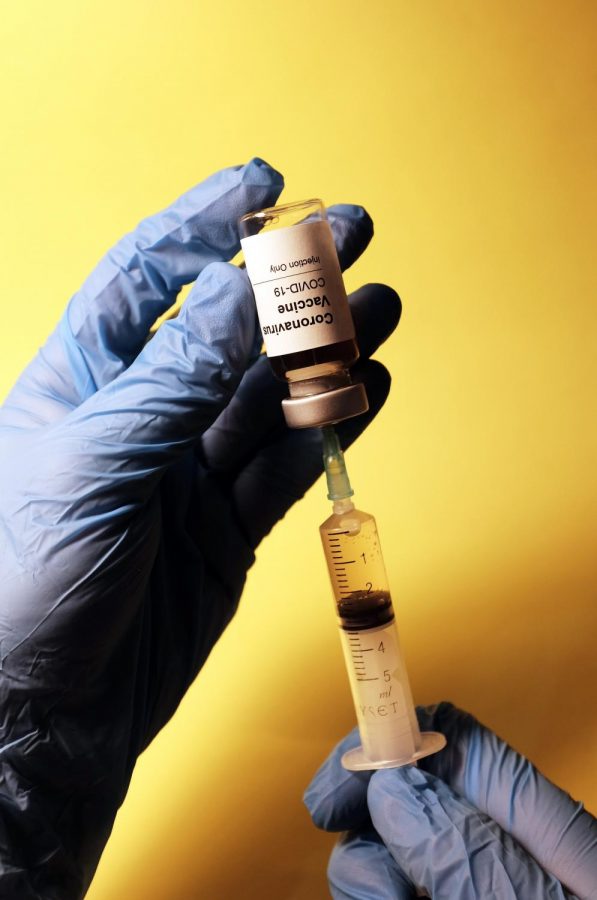FDA Approves first COVID-19 Vaccine
Photo used from Hakan Nural via Unsplash under Creative Commons.
FD-Yay. The U.S. Food and Drug Administration’s approval of the first COVID vaccine helps improve vaccination rates. The approval was the next step following Emergency Use.
August 31, 2021
On Monday, August 23rd, the U.S. Food and Drug Administration (FDA) approved the first COVID-19 vaccine. The shot, previously known as the “Pfizer-BioNTech Vaccine,” became FDA-approved for all individuals over the age of 16 years under its new name, Comirnaty.
“While this and other vaccines have met the FDA’s rigorous, scientific standards for emergency use authorization, as the first FDA-approved COVID-19 vaccine, the public can be very confident that this vaccine meets the high standards for safety, effectiveness, and manufacturing quality the FDA requires of an approved product,” said Acting FDA Commissioner Janet Woodcock in a press release.
Before this, all COVID-19 vaccines were under “Emergency Use Authorization.” This allows the FDA to release medical treatments that have not had time to undergo the full process necessary for approval in medical emergencies such as the COVID-19 Pandemic.
Ms. Kelsey Fusco, South Forsyth High School’s epidemiology teacher, explained how the Emergency Use Authorization was a unique case and a stepping stone towards full approval.
“The emergency use gave us the ability to start using it,” she said. “We had done the clinical trials, so we knew the safety of it, but they just hadn’t gone through all of the red tape yet [for full approval].”
According to the FDA, to get approved, vaccine developers submit a request for approval to the FDA. Then, a team of physicians, microbiologists, pharmacists, and other medical professionals research the vaccine to determine whether the shot’s benefits outweigh its risks. If they determine that it does, the vaccine continues on its way to approval.
“Essentially, you have to go through three major trials,” explained Ms. Fusco, referring to the necessary steps before approval. “Each trial has more and more [participants], so by the third trial, you have a significant amount of people.”
Even after approval, Ms. Fusco explained, all vaccines continue to stay under FDA oversight for long-term effects. The FDA can also ask manufacturers to run additional tests to watch for side effects and monitor for anomalies.
Following the approval, several entities started to implement vaccine mandates. The Military, New York Public Schools, and even Disney all mandated the vaccine for their employees. This limits options for those employees who do not want to get vaccinated, which makes up 30% of adults in the United States. However, nearly half of those hesitant to get the shot wanted to “wait and see” for future effects according to the Kaiser Family Foundation. Therefore, FDA approval could convince these individuals to get the shot.
Forbes argues that the FDA approval could result in increased vaccination rates depending on the context in which officials frame this information. The Forbes article warns not to use FDA approval as a “bludgeon” in conversation about the vaccine, but rather as a guide for explaining the process of vaccine approval.
The Forbes article also refers to a process called “Covid Fatigue.” This is a phenomenon that describes the mental health impact of constantly reading COVID-related news and processing a huge amount of information for the average citizen. The best way to improve vaccination rates, these papers argue, is not to unload huge amounts of information on those who are hesitant.
With this in mind, FDA approval of the vaccine remains an important step towards reaching herd immunity, but the treatment of this news by experts is what will determine the effects of this decision.





